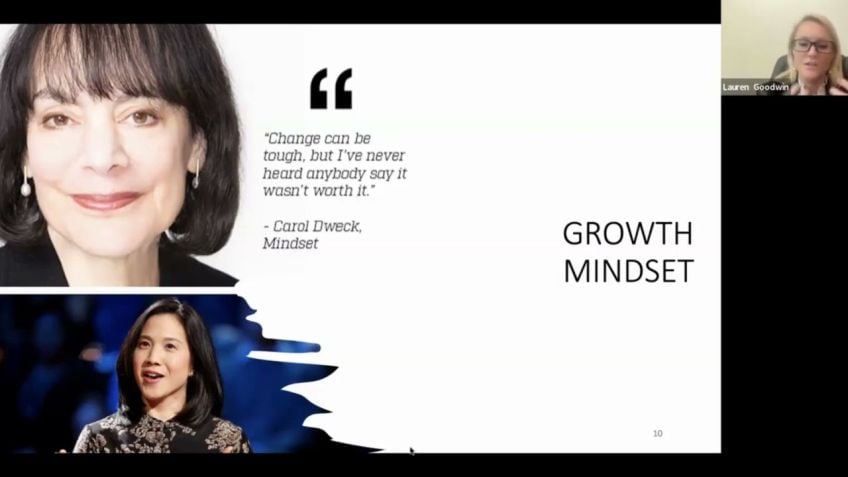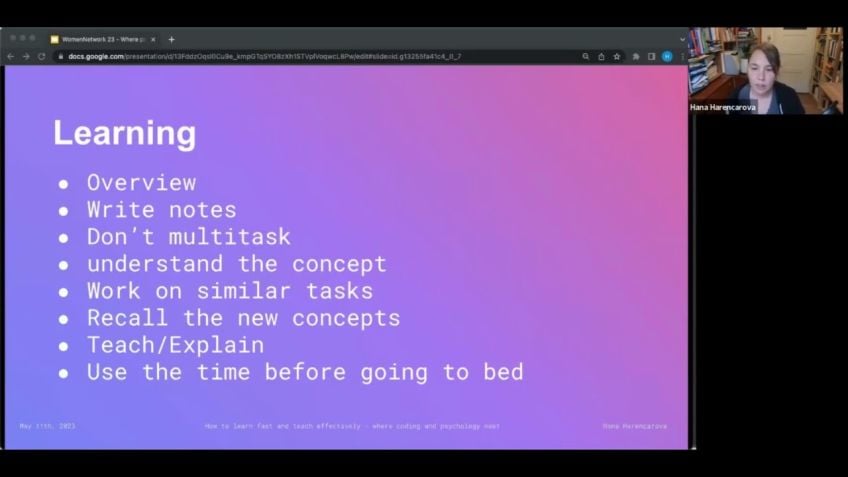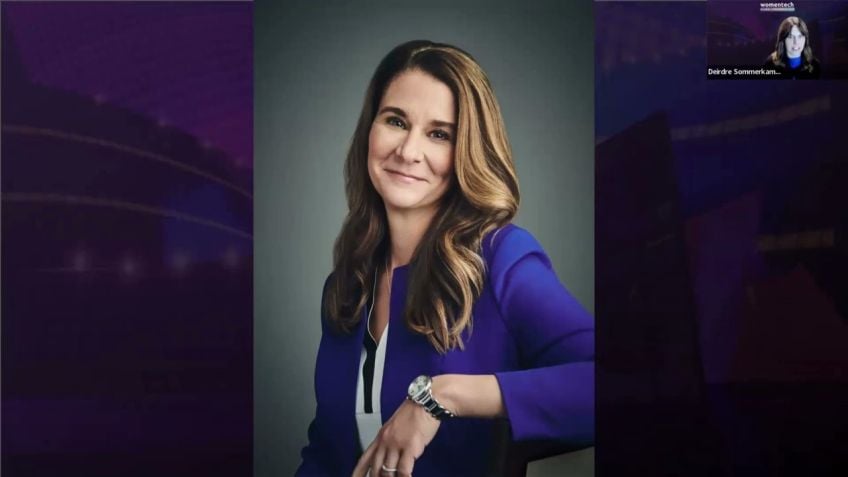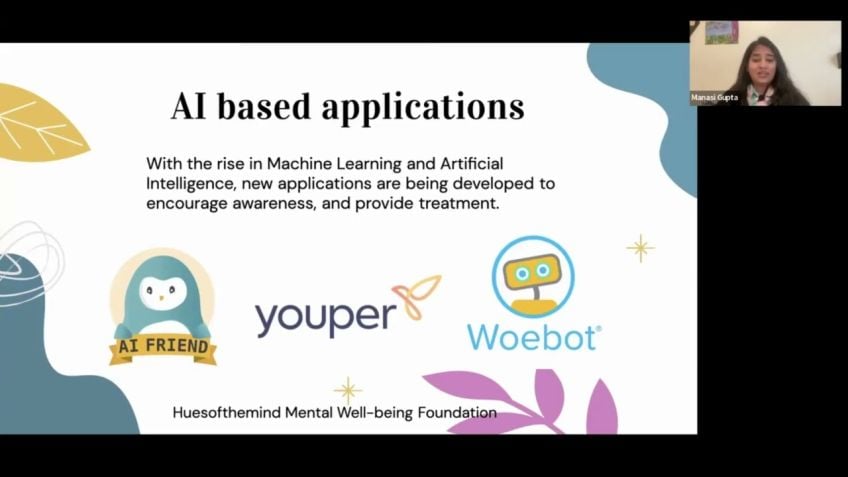Equity In Access In Action by Desiree Young
Unlocking Equity and Access in Education: A Pivotal Role in Bridging the Digital Skills Gap
Welcome for showing your interest in understanding how education plays a critical role in cybersecurity and encouraging diversity. Today we shine light on the work of Desi Young, Executive VP for Global Partnership and Strategic Innovation with Thrive DX. Desi shares her insights on the current landscape of the digital ecosystem and the potential for greater female inclusion in cybersecurity.
The Current Digital Landscape
Thrive DX, with its core focus on cybersecurity and digital skills training, is passionate about bridging the digital skills gap. They work with global institutions to deliver training solutions that fuel the workforce and enhance the digital ecosystem. "It has become very important to offer solutions to corporations and companies as we close the digital skills gap," Desi emphasizes.
The Imperative for More Women in Cybersecurity
Despite the significant strides women have made in various industries, there is still a considerable gap in the cybersecurity field. Statistics from the National Women's Law Center reveal that as of January 2022, women account for only 24% of the overall workforce in cybersecurity. Desi underscores the need for change: "This is definitely something that we can change, and there's an opportunity in building equity in access and equity in education."
Overcoming Challenges
In order for women to gain a stronger foothold in this male-dominated industry, they must seek to improve their marketability. "We need to be better skilled, we need to be able to advance the labour force in a way that we can increase ourselves to many different levels within the companies,” proclaims Desi.
Creating Opportunities for Women
Desi strongly believes that adding more women to managerial and leadership positions in cybersecurity will pave the way for greater innovation and better problem-solving in this domain. This increased female presence in cybersecurity can trigger more interest and excitement among other women to enter this field.
Empowering Through Education
In discussing the role of education, Desi cites Thrive DX's initiatives to encourage and support those in transition or looking to reskill. Their hands-on, impactful and engaging programs offer a direct path to the world of cybersecurity, where trainees become future-ready within months. This creates inclusive opportunities, leading to diversity and innovation within the workforce.
Breaking the Glass Ceiling: The Role of Workplace Diversity
Desi optimistically points out how Thrive DX strives to create balance through initiatives that empower women not just externally but also within their organizational structure. "We focus on a lot of women where it is that we provide this opportunity outside, but we also do it within." Thrive DX offers a snapshot of gender diversity with key female figures holding crucial roles within their organization, becoming role models for others.
How to Break Barriers: Tips for Women in Cybersecurity
Desi shares some key tips for women wishing to carve a niche for themselves in cybersecurity:
- Find a mentor: Mentors can guide in navigating professional pathways and provide useful insights based on their own experiences.
- Look for a sponsor: Sponsors are advocates who can help facilitate career advancement by talking about your achievements, especially when you are not present.
- Find allies: Allies offer proactive support and help in bringing down barriers – they can advocate for you in underrepresented situations.
In conclusion, women can indeed cross the glass ceiling, but this requires self-empowerment, endorsement from mentors, allies and sponsors, continuous upskilling and reskilling, and ultimately, a strong belief in their capabilities.
Video Transcription
Everyone. And thank you for joining the session with me today. I am Desi Young and I'm the executive VP for Global Partnership and strategic innovation with thrive DX. So thank you so much for joining equity and access in education a little bit about me.So I work with a global leadership uh company. Thrive DX. We focus on cybersecurity and digital skills training where we partner with institutions and we of course, provide training solutions um opportunities for the workforce and of course, the digital um ecosystem, it is important that we focus on corporations and companies where we're able to offer solutions for them as we close the digital skills gap.
So more than 20 years of higher ed experience is what I have um including developing and managing programs at many different levels, focusing on uh certificate programs, masters, doctoral levels. Uh we partner and innovate across the globe. So we focus on those who are in transition, those who are looking to reskill and upskill and prepare learners to have a generational impact, of course, in the digital space. So it is very important because cybersecurity has now become a pivotal point. It's become the topic of conversation.
It has become where we need to now focus on what it is that we can do to get more women in power to get more women into the cybersecurity profession as they do serve as role models. So let me share a little bit of stats with you. So in February 2020 to January 2022 male workers have regained all the jobs that they've lost during the pandemic. So given that this was an analysis that was done by the National Women's Law Center. Now, there are 1.1 million women left in the labor force during the span which account for 63% of job loss. So while women have gained 100 and 88,000 positions since January 2022 they are still short by more than 1.8 million jobs that have been lost since February of 2020. So currently women working in a cybersecurity account only for 24% of the overall workforce. Now, this is definitely something that we can change and there's an opportunity in building equity in access and equity in education. So according to cybersecurity venture, predict woman will represent 30% of global, you know, of the cybersecurity workforce by 2025 and that will reach 35% by 2031 which is a great number. So we're increasing by 5%. As you can see as the years progress.
Now, in order for us to elevate. And in order for us to encapsulate ourselves in a industry that is very male dominated, we need to seek how we can better position ourselves. So it is important that we seek out how we can engage reskilling and reskilling by looking for others who are similar to us, right? So if you can see her, you can be her. It is important that we focus on where we can exemplify adversity. We can exemplify resilience, strength, purpose and power just to name a few. So as women, we in this profession, we now become role models for others. Now, it is very important that as we engage into these workforce and we are making it more diverse by adding more women into managerial positions into leadership positions. The result of this can be where we will be more innovative and we will be able to better solve problems, especially in the cyber world. We will help address and close that digital skills gap when it comes to cybersecurity. Now, when it comes to penetration, if they call hacking, when it comes to network administration, networking analysts, these are the different areas that we can engage, we can seek out and we can be hired for.
So the more women that are successful in cybersecurity, the more likely they will attract others who would want to be in this particular industry as well. It is important that as we look and see what it is that we can do, we need to be more educated in the field. We need to be better skilled, we need to be able to advance the labor force in a way that we can increase ourselves to, to better be able at, to be at many different levels within um the companies. And they can readily identify and look at us for the skills necessary. The industries right now are seeking specific skills for certain position in the digital transformation world. The only way we will be able to be hired for this position or even considered is where we come to the table with the necessary skill set. How we can do that is where we can engage in education, we can engage in certifications. We can look to see how we can empower ourselves to be more marketable by equipping ourselves with mastery of skill based competences.
So by looking at the historical, you know, um obstacles and you know, barriers that we would have to face, we, we have faced inequity in salary, we have face inequity in opportunities um in the tech field, we need to be able to look and see what is out there and how it is that we can engage.
Now, how we can do this. So we have to look at going beyond the glass ceiling. If we look at going beyond the glass ceiling, this is where upskilling and reskilling of women plays a pivotal role. Now, if we become lifelong learners to grow and open the door to new opportunities. This is where we will enable ourselves to be more um looked at in terms of OK, they are prepared, they are trained, they are ready for the future opportunities of what the digital skills will be seeking. Now at thrived X, what we do is we have created programs where we are able to look, offer those who are in transition, those with little or no skills that want to enter into the field. So we have built um very skill based content with subject matter experts from all over the world, where we're able to put this out into institutions, into technical institutes, into community colleges by going into community colleges and universities and where we open the door for the workforce to come in and be trained in as little as three months, six months, 10 month programs that we have in in the cybersecurity industry that are very tailored with very hands on, very impactful and engaging content that will help prepare you for.
What is out there, we will help you to be future ready. So this is where equity in education plays a pivotal role for women because we need to be able to say, let me find this opportunity. Let me capitalize on the opportunity. Let me see how it is that I can increase my resume and go out there and not be afraid to be challenged, to be questioned to to be afforded the opportunity to say, can you make it in this position and how successful can you be? Can you be transformational? Can you have this um excessive impact on a company because of your skill set? Yes, we can. Many women have proven that time and time again that they are able to go beyond the glass ceiling, we see it, but we can't break it, we can't break barriers, we can overcome the obstacles that we may face when it comes to inequity, in access. The way we can create equity in access is where we can forge that path for career advancement. And one thing I need to touch on is the fact that many times we are so caught up in creating what it is that we need to do uh in, in terms of our positions and how we can excel.
Because when we come into a job, we have to work 34 times harder than the next person because we have a point to prove we have justifications. We are being looked at under a microscope. And because of that, all too many times, we forget that there are other opportunities out there that we can engage social media, that we can put ourselves out there so that we can be informed and we should not be afraid to respond to these opportunities. So by responding to these opportunities, we allow ourselves to be engaged, we allow ourselves to be called we allow ourselves to be in the conversation or the topic of the conversation, which I will talk about a little bit later. Um in terms of how it is that we can do that and where our voices can be heard in the room. Even when we are not. So innovation and technology, desserts are important for people to understand because individuals in the community are earning the money, they need to come back into the community and spend. So this creates economic opportunities and development. The way we can be a force within this is where we can have the impact by building technology, um skill set, we can upskill, we can reskill, we can challenge ourselves to be able to build a new or to see beyond what is actually there or look ahead and forecast and, and be predictable in terms of what will be the next impact that that will be on the industries and how it is that we can be a solution, how it is that woman can be an opportunity.
Now, it is key that we invest and develop the pipeline of women careers and we have to do this very early on. That's why we talk about becoming lifelong learners. So if you're in education and you have your degree and you're like, OK, I have my degree. But what else can I add on top of this? So we layer it right? And then we layer by looking at certification um courses and certificate courses that focus specifically on skill set. We may have been afraid to say, you know, let me go in, let me challenge myself. Let me do this. But it's where that has now passed. We are now at the door, we are now opening the door. We are now getting in and having a seat at the table where we're saying we're here. We can be seen, we can be heard because we are prepared. We are skilled, we're knowledgeable, we're experienced and we are educated, but we are the ones that will have to do that. We have to put ourselves out there and we need to ensure that we are preparing ourselves with the necessary uh education um and, and the access, if we have the access and we are prepared and we get in, we can make room for others.
We can then create opportunities for others. And here is where I want to talk a little bit about at thrive. So at thrive, we do have the programs and we have the education and we promote um resilience and, and we go out there to the under-resourced, you know, the those low socio-economic status, we look at the, you know, those who are facing adversities and we provide them with an opportunity so that they can be skilled and they can find a job and they can go out there and have an impact.
But we focus on a lot of women where it is that we provide this opportunity outside, but we also do it within. Now, here we're showcasing Ingrid. So she is our Chief Digital Transformation Officer where she oversees the entire landscape in terms of um our enterprise model for education and anything that we put out there in terms of academies and reskilling and upskilling the workforce. We have Y Oval who's the product manager who focuses on building the technical aspects, creating the case studies, creating the innovation, the design, the intricate part of the curriculum content that is, that is um being offered to learners. And we have Lisa. Lisa is our VP of global brand, marketing and communication for this digital global company. Now, she comes from Deloitte Microsoft. She has a wealth of experience in terms of what it means to be able to market and promote um either your product, your content, your industry, and more specifically yourself as a woman of color. She pushes beyond the status quo and have proven herself to be valued, have proven that it takes work, it takes determination, but it can be accomplished again. If you see her, you could be her and Elizabeth, she's our VP of um people.
So when we talk about how it is that we can make this change, it is key that when we look at how it is done, we have to look at the hiring managers. If we look at the hiring managers, they are the ones who are looking through the resumes, looking at the skill set, looking at the experience, looking at the positions and what it is that we need. We have to be fair and we have to be equitable as we look at these things. Uh And Elizabeth, she has been able to empower many women and she has been able to afford an opportunity to many because of the position that she's in. So again, it goes back to where we need to find equity and access. We need to find equity in education so that we can position ourselves in, in, in a way where we are able to open the doors for others as well. So that is very important. Now, as we look at what is next and we look at how it is that we can do a lot of what we're talking about here, women in tech, breaking the barriers, getting access to inclusion and belongingness and support. It is important that we look at how it is that we can do this. Now, it is key that we find a mentor. It is key that a mentor is there to advise and navigate a lot of things.
Um We, what we have is that we are not able to share the opportunities that, that we understand with others. Now, we need to identify those who can, those who may be well advanced, those who may look different than you, those who may have been in the industry for a while, those who have understand the landscape and understand how it is that it will be able to, to, to engage a position or look for the opportunity.
That's where you seek out. Mentors, mentors are valuable asset to enable you to look within yourself, to look at your future pathway to look and see. What does this road map look like for yourself as a lifelong learner, as a professional, as a role model, as someone who want to afford an opportunity for others. So you look for a mentor. You also look for those who can be a sponsor to you. A sponsor are those who will advocate for you. Those who will advocate for you when you're not there. So are your voices and your presence and your experience being talked about or recognized? The way this is done is by looking, by having it done through a sponsor and by looking for a sponsor, this goes back to who you know, and those who can help you elevate your career, no allyship, an ally is someone who will proactively help you and support you. They will be that voice at that table. When you're underrepresented, they will be the ones who will remove the barriers and allow you an opportunity to come in. So it's always great to seek allies as we are investing our skill set and creating opportunities for the future. So it is important that as we look and see what it is that we are engaging and what we are doing.
We have to be able to embrace the opportunities that others may have found that it's not gonna be possible that it's not going to be where we can, can do this. But yes, it is. We as women. I'm an executive VP I showed you Lisa who's a VP, you have others who are cio ceo S, you have those that play a very integral part within the assembly line, within the core values of companies and industries. It is important that we engage. We embrace and we recognize that. But look for the mentors, look for those who can sponsor you, look for those who will become allies of you. Now at thrive DX, we will continue our pathway and our roadmap to educate and train as many as we can, many women, many women that we would like to see out in an industry that have forever been male dominated, that have forever been where creating barriers for us. But we can't go beyond the glass ceiling, we can break down those walls, but we need to embrace the opportunities when it of furthering education, looking at certification, looking at what else it is that we can do to make ourselves valued even more because we are but be recognized and have our voices heard in the room even when we're not there.
So thank you all for joining this session. And I hope that you continue to enjoy the rest of the global conference. Thank you so much.





